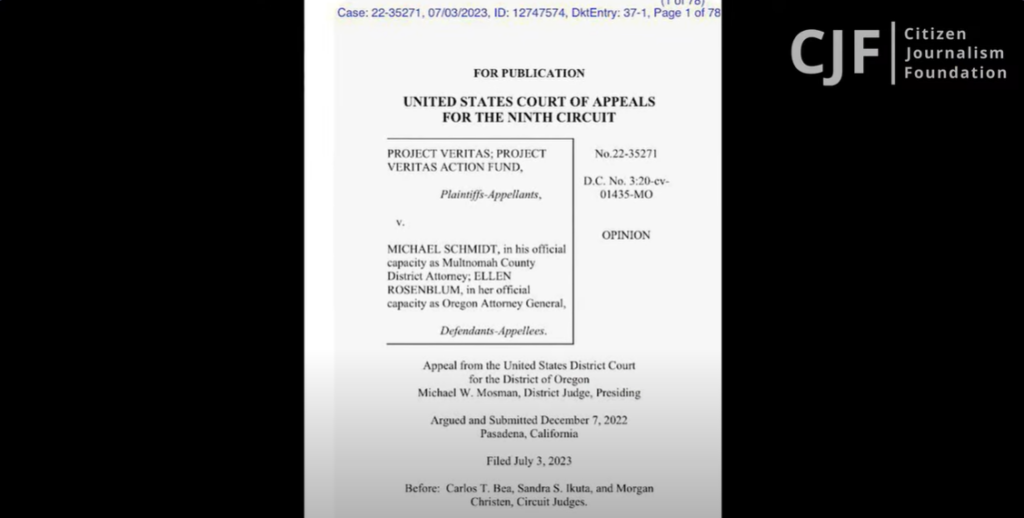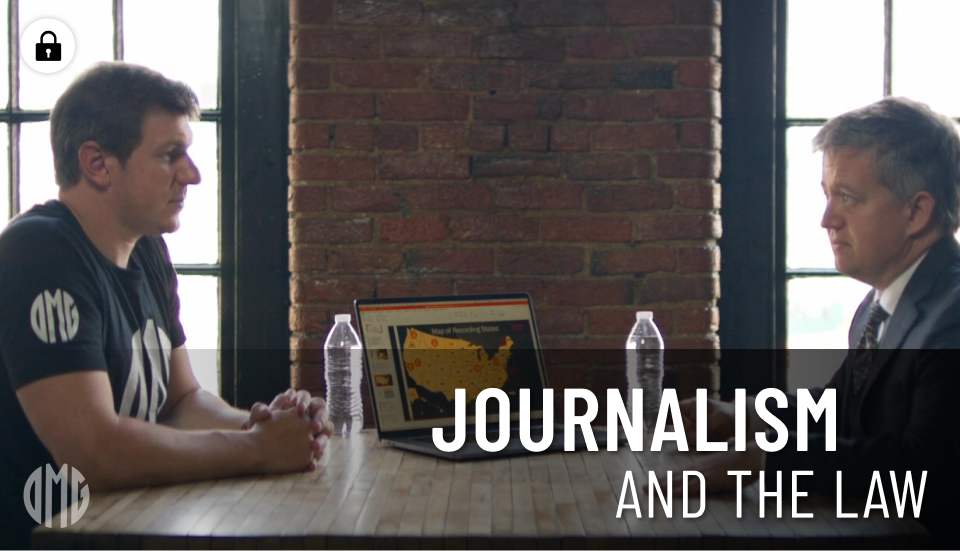The Ninth Circuit Court of Appeals, in a surprising en banc decision, has reversed its earlier ruling and upheld the constitutionality of Oregon Revised Statute (ORS) 165.540(1)(c), which prohibits unannounced audio recordings. This latest development has reignited debates about the balance between privacy laws and First Amendment protections.
ORS 165.540(1)(c) explicitly states: “It is unlawful for any person, unless the person is specifically informed that the communication is being recorded, to use any device to record a conversation unless all parties to the conversation are informed that the conversation is being recorded, except as provided under subsection (2) of this section.” In essence, this law requires consent from all parties involved before any audio recording can occur, with limited exceptions.

In July 2023, the Ninth Circuit had initially ruled in favor of Project Veritas, finding that the law violated the First Amendment by imposing restrictions on journalistic practices and public discourse. However, the recent en banc decision overturned that ruling. Chief Judge Mary Murguia, writing for the majority, held that the statute is constitutional, emphasizing the state’s compelling interest in protecting privacy and maintaining trust in personal communications.
The decision was not without controversy. Several dissenting judges argued that the law is overly broad and imposes significant constraints on free speech. They contended that it disproportionately impacts journalists and whistleblowers who rely on unannounced recordings to uncover and expose matters of public interest.

Benjamin Barr, an attorney representing James O’Keefe and Project Veritas, announced plans to file a writ of certiorari to the U.S. Supreme Court. Barr maintains that the law’s restrictions undermine the ability to record and disseminate accurate information, a cornerstone of journalistic freedom.
As O’Keefe prepares to take the fight to the Supreme Court, the case could shape the national conversation about privacy and freedom of speech.







